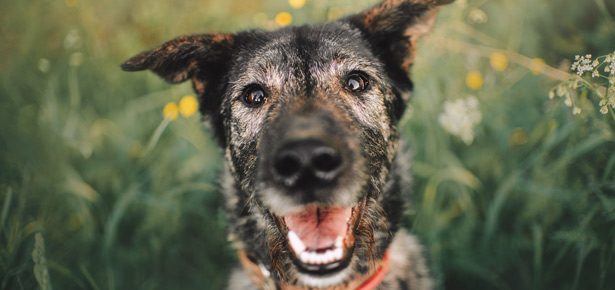

What Are the Signs of Kennel Cough?
How to know when your dog's cough is something to worry about
Like humans, dogs can experience a noisy, dry cough caused by an irritated throat. However, persistent coughing paired with a fever, nasal or ocular discharge, or loss of voice may be symptoms of a more serious condition, such as kennel cough.
Canine infectious tracheobronchitis, or kennel cough, can develop in dogs when they inhale bacterial or viral particles into their respiratory tract. Mucus coating the respiratory tract normally collects these infectious particles, but several factors can weaken this protection and expose dogs to viruses and bacteria that may cause kennel cough.
Dr. Brad Bennett, lecturer at the Texas A&M College of Veterinary Medicine & Biomedical Sciences, explained the basics of kennel cough. “Kennel cough is a respiratory disease classified by an infection in the throat caused by inhaling bacteria, coming into contact with viruses, or both,” Bennett said. “Kennel cough is usually illustrated by inflammation of the trachea, but it can also lead to bronchopneumonia.”
Dogs who are exposed to crowded areas with poor ventilation, such as those found in kennels or animal shelters, are at higher risk for developing kennel cough. Cold temperatures, exposure to cigarette smoke, and travel-induced stress can also increase a dog’s risk for developing the infection.
The symptoms of kennel cough, including a dry, “honking” cough, coughing to the point of retching, fever, loss of voice, and ocular or nasal discharge, can be caused by multiple sources, but the most common cause is a bacterium called Bordetella bronchiseptica. It is not unusual for dogs who become infected with Bordetella to be infected with a virus at the same time.
This combination of bacterial and viral infections weakens the dog’s mucosal protection in the respiratory tract against infectious particles, increasing their risk for kennel cough.
Although the coughing caused by kennel cough may sound awful, the disease is not considered serious. Bennett recommended vaccinating your dog against Bordetella to help prevent respiratory infections from evolving into kennel cough. “Most local veterinarians have vaccines that can aid in the prevention of this disease,” Bennett said. “These vaccines may be given intranasal or through a subcutaneous injection depending on the vaccination.”
If you think your dog may have kennel cough, you should contact your veterinarian and keep your dog away from other animals to prevent the spread of the disease. Though it is important to monitor your dog’s coughing habits closely, Bennett reminds pet owners that there are many different problems that can cause a pet to cough, including an obstruction in the throat, primary lung disease, parasitism, cardiac disease, as well as infectious disease.
Join the newsletter and never miss out on dog content again!
"*" indicates required fields
By clicking the arrow, you agree to our web Terms of Use and Privacy & Cookie Policy. Easy unsubscribe links are provided in every email.





